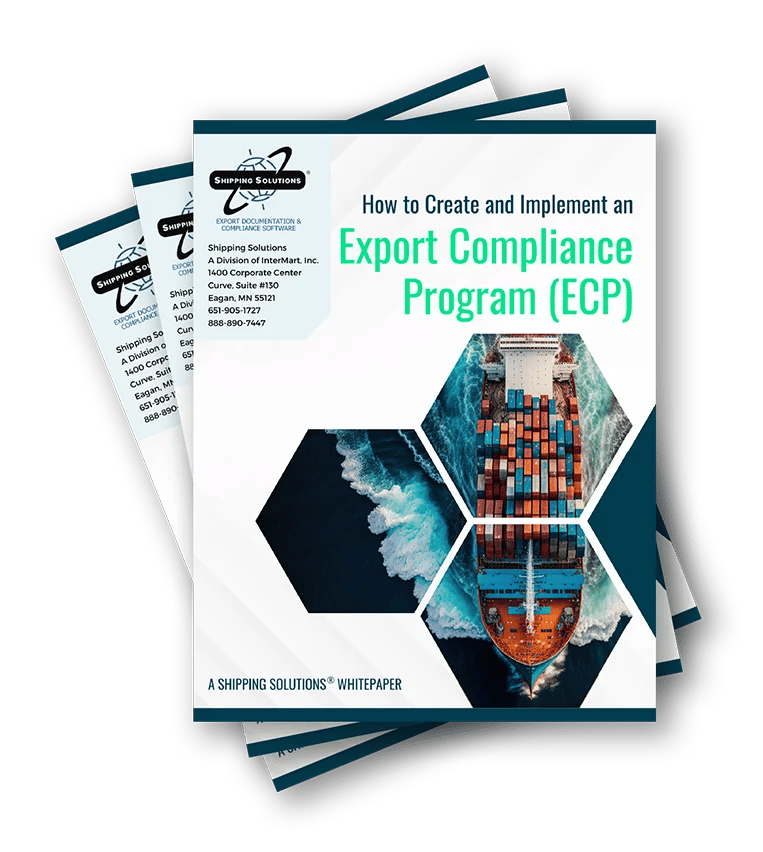The International Trade Blog Export Compliance
Your Business Needs an ECP Now (and Common Mistakes to Avoid)
On: April 3, 2024 | By:  Mitch Kostoulakos |
3 min. read
Mitch Kostoulakos |
3 min. read
 The value of an Export Compliance Program (ECP) has been well documented in this previous Passages post.
The value of an Export Compliance Program (ECP) has been well documented in this previous Passages post.
Exporters, what has prevented you from implementing an Export Compliance Program?
Why Do Exporters Procrastinate on ECPs?
Here are the most common self-imposed roadblocks:
- Inertia—initial steps are taken to develop an Export Compliance Program but progress stalls as more urgent tasks need attention.
- Management believes that the company is too small or does not export enough to need a formal ECP.
- Lack of upper management commitment and willingness to put in the time.
- Management is unwilling to spend the money or devote resources to create an ECP.
- Compliance is managed at lower levels with limited authority to get the project done.
- Reliance on Logistics Service Providers for compliance. While LSPs are valuable business partners, the exporter is ultimately responsible for compliance.
Building a Strong ECP
An effective Export Compliance Program includes these elements:
- Management commitment
- Risk assessment
- Export authorization (agency jurisdiction)
- Record keeping
- Training
- Audits
- Handling export violations (corrective action)
- Build and maintain an ECP manual
The most essential element, by far, is management commitment. C-level executives must allocate resources, communicate the importance of an ECP throughout the organization and hold everyone accountable. Without strong management commitment and involvement, you will end up with a weak program.
In addition to C-level commitment, compliance professionals know that an effective ECP must also include sufficient funding, well-defined and documented responsibilities, ongoing training and internal audits. Weak ECPs lack some of these elements and are simply window-dressing or paper programs.
In some cases, exporters may be under pressure to put a program in place quickly, with the focus on creating the ECP manual. This approach ignores the foundation needed for an effective program. The likely result will be a glossy manual that will sit on the shelf and have negligible impact on operations.
In-house compliance professionals are often given responsibility without authority. Further, they may be at mid- or lower-management levels or in the wrong chain of command. With or without a formal ECP, compliance professionals must have the authority to place holds on questionable exports without being overruled by sales, finance or supply chain. Written protocols for resolving issues and releasing holds require C-level or legal approval.
All of the above illustrates the importance of compliance independence. This may mean reporting to the CEO, COO or legal department to remove pressure from other groups.
Finally, do not self-blind on export compliance. It is time to get started.
Like what you read? Join thousands of exporters and importers who subscribe to Passages: The International Trade Blog. You'll get the latest news and tips for exporters and importers delivered right to your inbox.

About the Author: Mitch Kostoulakos
Mitch Kostoulakos is an independent logistics consultant and a Licensed Customs Broker (LCB). He was an award-winning International Executive with FedEx Services before launching Ad Hoc Logistics LLC, and previously held management positions in the LTL industry. Ad Hoc Logistics assists small and medium-sized firms with international logistics and customs issues. Mitch holds the CTL—Certified in Transportation and Logistics designation. His articles have been published in Transportation Journal. He was honored to be appointed to the Standing Committee on International Trade and Transportation of the Transportation Research Board beginning April 2020. TRB is a unit of the National Academies of Sciences, Engineering, and Medicine.



